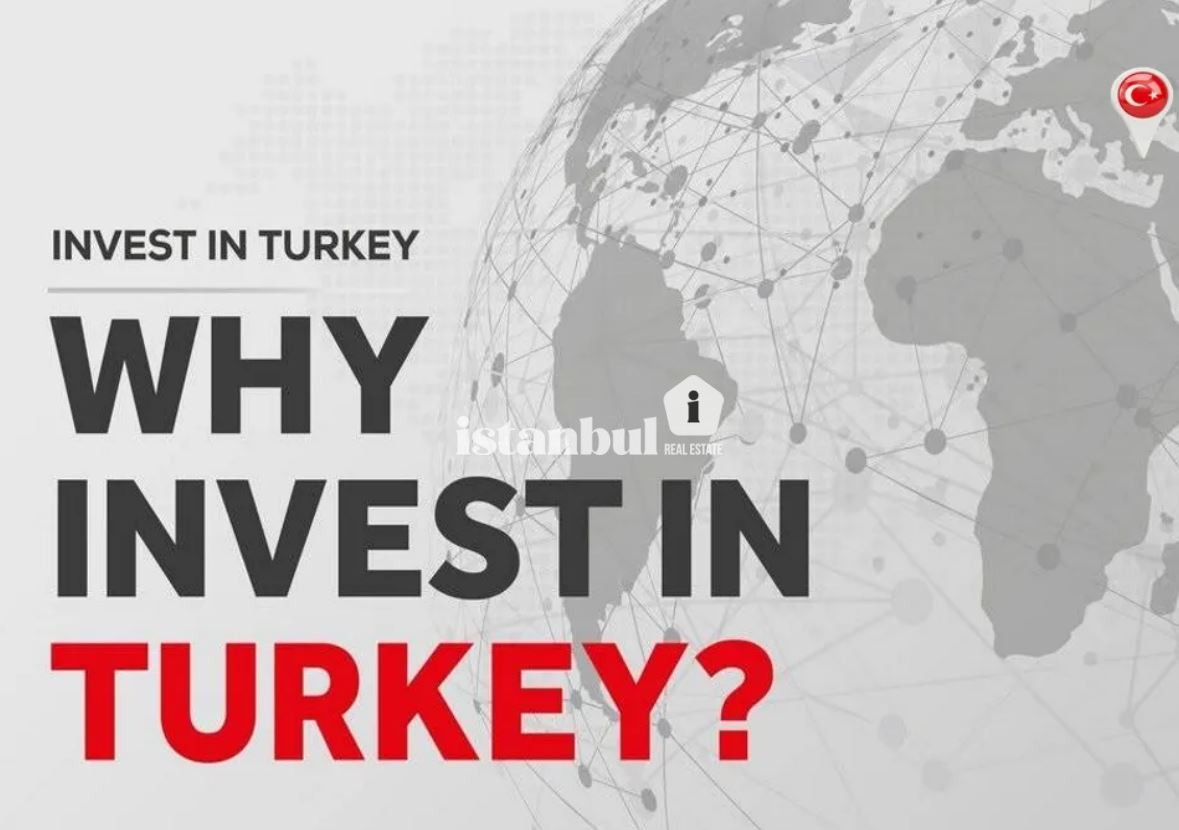Turkey Investment
Know About Opportunities and Insights By Turkey Investment In 2024
Turkey, with its unique geographical location bridging Europe and Asia, robust economic potential, and dynamic market, has become a prime destination for global investors. From real estate to manufacturing, the nation offers diverse investment opportunities backed by a business-friendly environment. This article provides an in-depth look into Turkey Investment landscape, highlighting key sectors, processes, and benefits for potential investors.
Why Invest in Turkey?

Turkey’s strategic advantages make it an attractive hub for international investors. Here’s why:
1. Strategic Location
Turkey serves as a gateway to Europe, the Middle East, and Central Asia. With proximity to major markets and well-connected infrastructure, it offers unparalleled access to over 1.5 billion consumers.
2. Growing Economy
Turkey is one of the world’s fastest-growing economies, with a young and dynamic population driving its expansion. The government’s focus on infrastructure, technology, and innovation further fuels growth.
3. Investment Incentives
The Turkish government offers numerous incentives, including tax exemptions, free trade zones, and support for research and development (R&D) activities.
4. Real Estate Boom
Turkey’s real estate market is booming, attracting investors with competitive prices, high rental yields, and the possibility of citizenship through property acquisition.
5. Favorable Business Climate
Turkey’s regulatory environment supports foreign investment, with simplified procedures and strong legal protections for international businesses.
Key Sectors for Investment

1. Real Estate
Turkey’s real estate sector is a top choice for foreign investors. Key highlights include:
- Residential Properties: High demand in metropolitan areas like Istanbul, Ankara, and Izmir.
- Commercial Properties: Growing business hubs create opportunities for office and retail investments.
- Tourism-Related Properties: Coastal cities like Antalya and Bodrum attract vacation property buyers.
2. Tourism
With its rich history, natural beauty, and cultural heritage, Turkey is a global tourism hotspot. Investments in hotels, resorts, and tourism services are highly lucrative.
3. Technology and Innovation
Turkey’s focus on technology and innovation has led to a thriving startup ecosystem. Key areas include fintech, artificial intelligence, and software development.
4. Manufacturing and Industry
Turkey’s manufacturing sector is diverse, covering automotive, textiles, and consumer electronics. Its skilled workforce and competitive costs make it an ideal manufacturing hub.
5. Agriculture and Agribusiness
Turkey’s fertile land and favorable climate support a robust agriculture sector. Investments in agribusiness, food processing, and export-oriented farming are promising.
Steps to Invest in Turkey

Step 1: Conduct Market Research
Understand the market dynamics, demand trends, and regulatory environment in your chosen sector.
Step 2: Choose an Investment Pathway
Decide between direct investment (setting up a company) or indirect investment (real estate or financial instruments).
Step 3: Establish a Legal Presence
Set up a company or acquire property in compliance with Turkish laws. This involves:
- Registering with the Trade Registry.
- Obtaining a tax number.
- Opening a Turkish bank account.
Step 4: Leverage Government Incentives
Identify applicable incentives, such as tax exemptions, land allocation, or R&D grants.
Step 5: Manage Operations and Growth
Collaborate with local professionals, including lawyers and financial advisors, to streamline operations and scale your investment.
Investment Benefits

1. Citizenship by Investment
Investors can acquire Turkish citizenship by:
- Purchasing real estate worth at least $400,000.
- Depositing $500,000 in Turkish banks.
- Establishing a company with significant job creation.
2. High Returns
Turkey’s dynamic markets offer competitive returns on investments, particularly in real estate, technology, and tourism.
3. Diversification
Investing in Turkey allows you to diversify your portfolio, balancing risks and opportunities across sectors and regions.
4. Access to Emerging Markets
Turkey’s strategic location provides a gateway to emerging markets in Europe, the Middle East, and Central Asia.
Challenges to Consider

While Turkey offers significant opportunities, investors should be mindful of:
- Economic Volatility: Monitor currency fluctuations and inflation rates.
- Bureaucracy: Although streamlined, some processes may involve paperwork and approvals.
- Cultural Differences: Understanding local business practices and culture is crucial for success.
FAQs
1. Can foreign investors own property in Turkey?
Yes, foreign nationals can own property in Turkey, subject to certain restrictions based on location.
2. What is the minimum investment for citizenship?
The minimum real estate investment is $400,000, while other pathways require $500,000.
3. Are there tax incentives for foreign investors?
Yes, Turkey offers various tax benefits, including exemptions and reductions, depending on the sector and investment type.
4. How stable is Turkey’s investment climate?
While Turkey’s economy has faced challenges, it remains resilient, with strong government support for foreign investments.
5. Do I need to reside in Turkey for investment?
No, but regular visits are recommended to manage your investment effectively.
